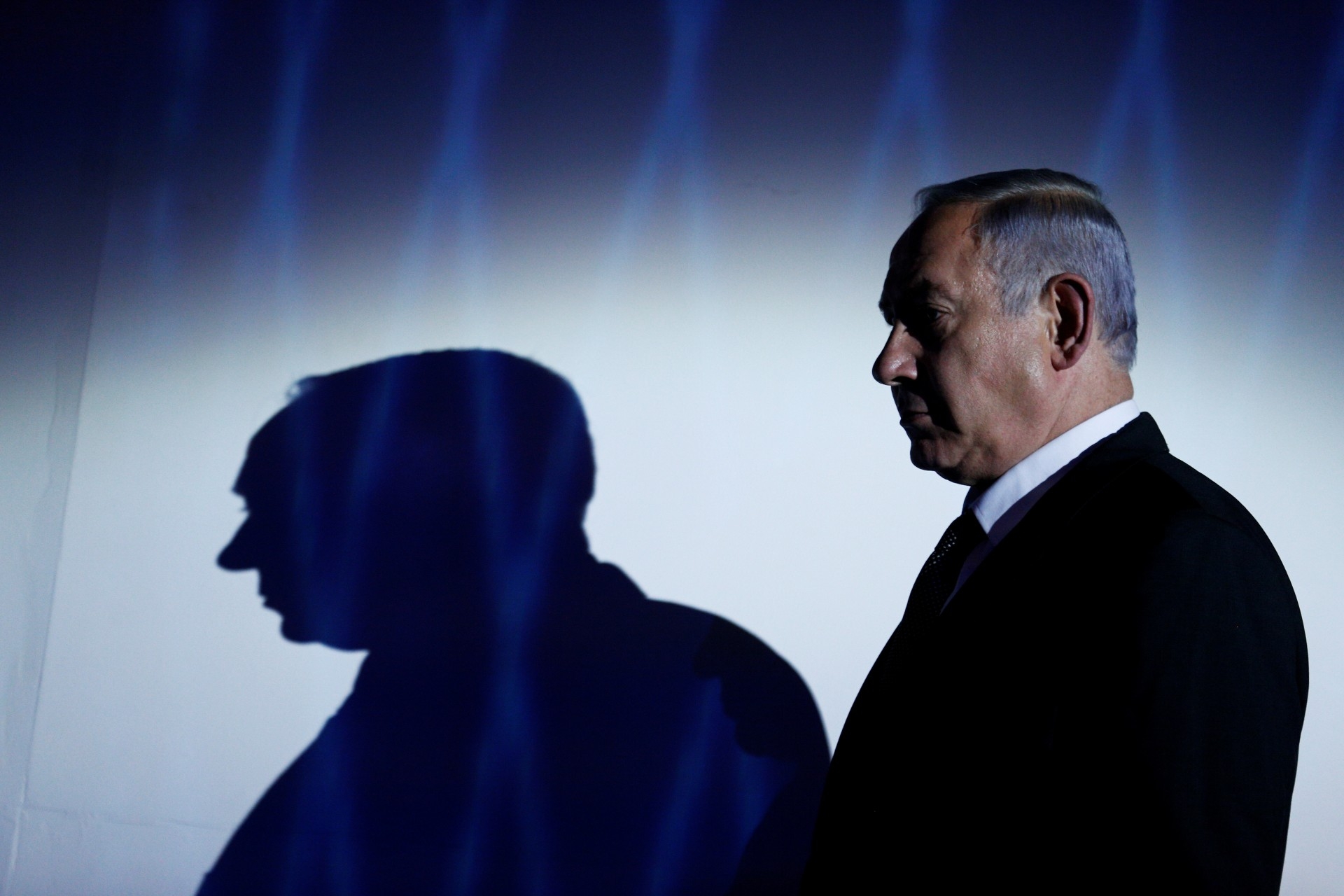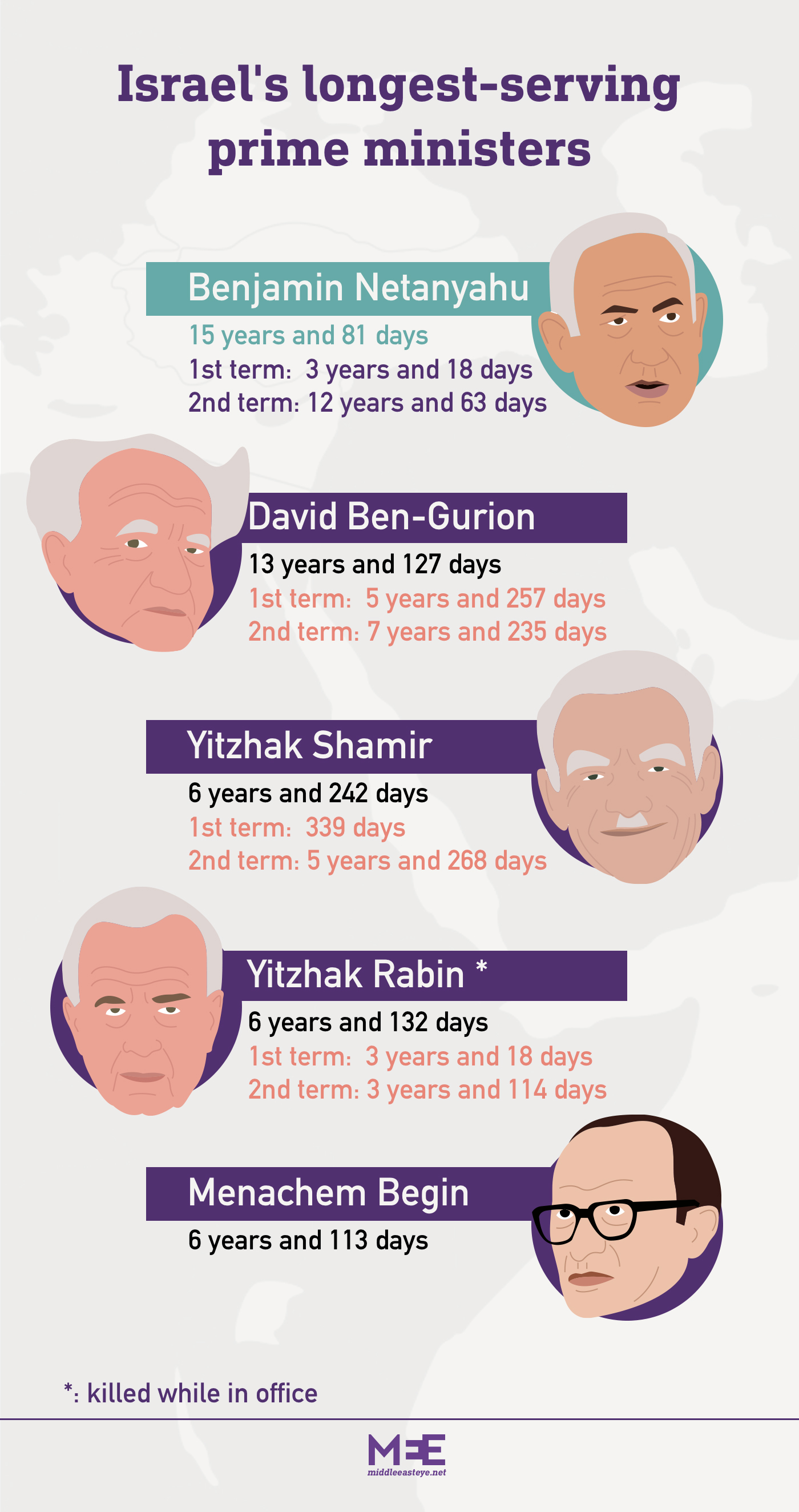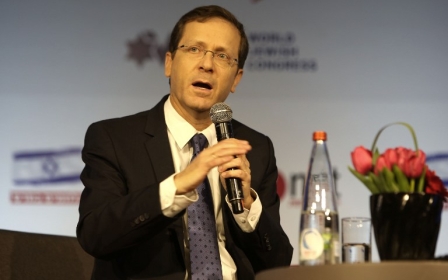Israel: Four reasons Benjamin Netanyahu's era is not over yet

Benjamin Netanyahu's political opponents finally succeeded in cobbling together a government on Wednesday, mashing up parties from left to right, secular to religious, all of them united by the goal of unseating Israel's leader.
Yet, Netanyahu remains at the prime minister's residence in West Jerusalem's Balfour Street. Until movers box up his furniture and transport it north to his home in the upmarket coastal town of Caesarea, he will deploy every canny card at his disposal to make the new administration fail before it has even begun. Even after he's left office, there's no counting Netanyahu out.
He still has time to tear Naftali Bennett and Yair Lapid's nascent and fragile coalition apart. Yes, perhaps it is too tight, but it is still not over.
Benjamin Netanyahu has ruled Israel for 15 of the last 25 years, across two terms. Even out of the premiership, he has made his mark. His influence over domestic politics and foreign ties is not going to be snuffed out overnight, and he appears determined to remain on the political scene for now.
After serving as Israel’s ambassador to the US and UN in the 1980s, he became the first Israeli prime minister to be born in the state in the 1996 election. Though that first stint in Balfour was characterised by instability and failure, Netanyahu became prime minister again in 2009 and has remained so ever since.
Stay informed with MEE's newsletters
Sign up to get the latest alerts, insights and analysis, starting with Turkey Unpacked
But space for his political manoeuvres has narrowed. Netanyahu has corruption charges looming over his head, which he denies, but could see him end up in prison. He's battled four inconclusive elections in two years, half of them during a pandemic, and been unable to pass a new budget since 2018.
Middle East Eye takes a look at a few ways Netanyahu may still find ways to ensure those removal trucks don't make the trip up Route 6.
Time until the confidence vote
Netanyahu will be looking at his calender and eyeing Wednesday 9 June. This is the date when all MPs are likely to gather at Israel's parliament, the Knesset, and vote in the new government.
Bennett, head of the Yamina party, is set to be prime minister for the first two years before swapping roles with Yesh Atid's Lapid, who will be foreign minister.
It is a bizarre government if you read Israeli commentaries. Lapid is the one who President Reuven Rivlin gave the mandate to form a government to, but Bennett, a far-right hawk, will lead it. The only time such a government was formed was during the 1960s, when Levi Eshkol formed a coalition for David Ben-Gurion to be prime minister.
Also, Yamina won just seven seats in the March 2021 election, making it only the fifth-largest party in the Knesset. One of those MPs, Amichai Chikli, broke from the party, refusing to sit with rivals such as Labor, Meretz and Raam.
That is a weakness Netanyahu will be looking to exploit. The incoming government has just 61 seats, the absolute bare minimum necessary to govern. One more defection from Yamina or another right-wing party would topple Bennett before he even takes office.
Notably, a recent poll showed 60 percent of Yamina voters said they would not vote for the party again had they known Bennett would join this coalition.
The Knesset speaker, Yariv Levin, belongs to Netanyahu's Likud party and is a close ally of the premier. He'll be looking to delay the vote as long as possible, to allow Netanyahu time to convince any wavering MPs, like Yamina's Nir Orbach, to break from Bennett.
Though Lapid called on Levin to convene the Knesset as soon as possible, the speaker has the legal right to delay the vote for a week. So conceivably we could see MPs only being able to vote on 16 June. That's a lifetime in politics.
Sensing Netanyahu's plan, members of the Yesh Atid and Yamina parties have been deliberating about the possibility of replacing Levin.
Pro-Netanyahu protests
Netanyahu will most likely try tempting right-wing MPs away from the new government with various promises. But there are other ways to pressure them.
The prime minister has an aggressive and loyal base of supporters known as the Bibists, who could occupy the streets protesting the government and bring Israel to a standstill.
Protests have already started in the past week in front of the houses of Netanyahu's opponents, who have received death threats. Shin Bet, the internal intelligence agency, has deployed personal security details to Bennett and his Yamina number two Ayelet Shaked in an unprecedented move. Lapid already has one as official head of the opposition.
After the 6 January storming of the US Capitol Hill, Israeli commentators have feared that pro-Netanyahu's supporters could restage the American saga on the streets of Jerusalem and enter the Knesset.
Though it sounds speculative, Netanyahu’s supporter groups, such as La Familia, have a history of assaulting anti-Netanyhau protestors in Tel Aviv. Likud remains the largest party, with 30 seats, and there are dozens of MPs from various right-wing parties that remain loyal to Netanyahu.
Israeli analysts draw a parallel between Netanyahu's narcissistic, l’état, c’est moi character, and his friend, former US President Donald Trump.
Meanwhile, Israel is still reeling from violent confrontations between Jewish and Palestinian citizens last month during the war on Gaza. That upheaval, including Israeli crackdowns on Jerusalem's Sheikh Jarrah neighbourhood and al-Aqsa Mosque, nearly sunk any chances of Mansour Abbas's Raam party joining Lapid's coalition.
Netanyahu has form for anti-Palestinian incitement, famously warning that Arabs were voting "in their droves" in the 2015 Israeli election. Further racial tension and conflict could place pressure on Raam, the first Palestinian party to ever sit in a governing coalition.
Netanyahu, leader of the opposition
In the event that Netanyahu is finally sent to the opposition benches, there are a multitude of ways he could undermine his opponents and prompt a fifth election.
The new administration is made of parties that have vastly opposing ideologies, and disagree over almost every major issue, including the judiciary, immigration, education, the Palestinian community and settlement in the occupied West Bank.
In order for the Bennett-Lapid administration to last, it needs to avoid conflictual issues that would open Pandora's box.
Islamist leader Abbas is seemingly one of the government's weak points. The head of Raam kept a channel open with Netanyahu until the last hour, before signing the coalition agreement with Lapid and Bennett.
Abbas's political mantra has been that his party is neither left nor right, and that it aims to achieve the demands of Palestinians who hold Israeli citizenship, which make up 20 percent of Israel's population. His party has four seats and has promised to solve the housing crisis and secure better municipal status for unrecognised villages and towns in the Negev if part of any future government.
But Raam now sits with three right-wing parties - Yamina, Gideon Saar's New Hope and Avigdor Lieberman's Yisrael Beiteinu - whose members have routinely espoused racist, anti-Arab views.
Lieberman, born in Moldova and a staunch secularist, has in the past opposed joining a government with Palestinian citizens of Israel. It remains to be seen how voters of his party and others will react to being in government with Raam.
Other disagreements might appear over education, a portfolio set to be taken by New Hope. The mishmash of parties makes it likely rows will break out over whether to prioritise religious or secular curriculum, and whether to allow rights groups who called Israel as an "apartheid state", such as B’Tselem, a platform in the schools and universities to give lectures.
These are just a snapshot of the disagreements likely to arise, and which Netanyahu and his allies could stoke and exploit to quicken the coaliton demise.
Regional conflict
This is probably US President Joe Biden's nightmare, but could be Netanyahu's road to safety. The new US administration has shifted its foreign policy to prioritise China and Russia, pivoting away from the Middle East.
It's not easy to do that, however, and as we saw last month with the Gaza war and Israeli crackdowns in Israel, East Jerusalem and the West Bank, crises can break out at any moment.
The conflict in Gaza, during which Israel killed 248 Palestinians, including 66 children, and Palestinian rockets left 12 dead in Israel, ended after 11 days without the clear-cut victory Netanyahu hoped for. For a time it looked like it would derail efforts to form a government and force a fifth election.
Tensions with regional rival Iran remain. On 1 June, during the ceremony to appoint the new chief of Mossad, Netanyahu said, referring to Iran: “If we have to choose, I hope it doesn’t happen, between friction with our great friend the United States and eliminating the existential threat, eliminating the existential threat” wins.
Israel and Iran have in recent weeks been conducting a tit-for-tat campaign of sabotage at sea. On Wednesday, Iran's largest warship caught fire and sunk, and though there are no indications Israel was responsible there are suspicions nonetheless.
But still, the chances of such a scenario unfolding are slim.
Netanyahu has the authority over Mossad operations, but not so over the army, the Shin Bet and the military intelligence. In 2019, prior to the September election, Netanyahu pushed for a war in the Gaza Strip, but was frustrated by the military chiefs.
This article is available in French on Middle East Eye French edition.
Middle East Eye delivers independent and unrivalled coverage and analysis of the Middle East, North Africa and beyond. To learn more about republishing this content and the associated fees, please fill out this form. More about MEE can be found here.









